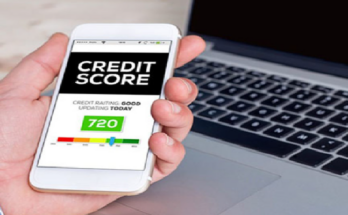Building credit can seem overwhelming if you’re new to it, but establishing credit doesn’t have to be a complicated process. Whether you’re aiming to get your first credit card or looking to build a positive credit history for future financial goals, there are several straightforward strategies to help you get credit quickly and easily. Here are practical steps you can take to establish credit, improve your score, and increase your chances of loan or credit card approval.
1. Start with a Secured Credit Card
A secured credit card is one of the simplest ways to start building credit. These cards require a cash deposit as collateral, which also sets your credit limit. For instance, if you deposit $300, that amount becomes your limit on the card. Secured cards are ideal for those with no credit history, as banks are more likely to approve applicants with no or low credit scores when there’s a deposit involved.
With a secured card, be sure to make timely payments each month and keep your balance low—ideally below 30% of your credit limit. Your payment activity will be reported to the credit bureaus, helping you build a positive credit history over time. Once you’ve demonstrated responsible use, some lenders allow you to upgrade to an unsecured card and refund your deposit.
2. Become an Authorized User on Someone Else’s Card
If you have a family member or close friend with a solid credit history, ask if they would be willing to add you as an authorized user on their credit card. As an authorized user, you can benefit from the primary cardholder’s good payment history, which can help boost your credit score. Make sure the card issuer reports authorized users to credit bureaus, as not all companies do.
This method is helpful if you’re just starting to build credit and may not yet qualify for a card on your own. However, remember that the primary cardholder’s activity will impact your credit report, so it’s important to choose someone who has a strong track record of on-time payments and low balances.
3. Apply for a Credit-Builder Loan
Credit-builder loans are specifically designed to help people establish or improve their credit. With a credit-builder loan, the lender holds onto the loan amount in a savings account, and you make monthly payments until the loan is paid off. Once it’s repaid, you’ll receive the loan amount, and the lender reports your payments to the credit bureaus.
These loans are often offered by credit unions and community banks, and they’re ideal for individuals who may not qualify for traditional credit products. By making on-time payments, you can build a positive payment history, which is one of the most significant factors in determining your credit score.
4. Use a Co-Signer for a Credit Card or Loan
If you’re unable to qualify for a credit card or loan on your own, consider asking a family member or close friend to co-sign the application. A co-signer is someone who agrees to be responsible for the debt if you’re unable to pay it. Having a co-signer with a good credit history can increase your chances of approval, as lenders will take the co-signer’s creditworthiness into account.
Keep in mind, however, that if you miss payments or default on the account, it will negatively affect both your credit score and the co-signer’s. Make sure you’re financially prepared to handle the payments before asking someone to co-sign.
5. Apply for a Store Credit Card
Store credit cards are often easier to qualify for than traditional credit cards, making them a good option if you’re just starting to build credit. Many retailers, such as department stores and gas stations, offer store-branded credit cards with less strict approval requirements. Although these cards typically come with higher interest rates, they can be useful for building credit when used responsibly.
To avoid interest charges, aim to pay your balance in full each month. Regular use of a store credit card, along with timely payments, can help you establish a positive credit history. Just be cautious not to overextend yourself, as carrying a balance on high-interest cards can quickly become costly.
6. Report Rent and Utility Payments to Credit Bureaus
In recent years, several services have emerged that allow you to report rent and utility payments to the major credit bureaus. Companies like Experian Boost, eCredable Lift, and RentTrack can report your monthly rent, phone bills, and utility payments, which can help establish or improve your credit score.
Rent reporting can be especially beneficial if you’ve been making timely payments but haven’t seen them reflected on your credit report. By showing a history of responsible payments, you can help build a stronger credit profile.
7. Monitor Your Credit Report and Score
Monitoring your credit report regularly is essential when building credit. Reviewing your report allows you to check for inaccuracies, such as errors or fraudulent accounts, which could negatively impact your score. The three major credit bureaus (Experian, Equifax, and TransUnion) are each required to provide you with a free credit report once per year through AnnualCreditReport.com.
Additionally, some credit card issuers and financial institutions offer free credit score tracking, allowing you to monitor your score over time. By keeping an eye on your report and score, you can ensure your efforts to build credit are working and address any issues that may arise.
8. Make Payments On Time
No matter which methods you use to build credit, the most crucial factor is making payments on time. Payment history makes up 35% of your credit score, so missing payments can severely damage your credit. Set up automatic payments or calendar reminders to help you stay on track, and try to pay at least the minimum amount due each month.
Even a single missed payment can hurt your credit score, so make it a priority to maintain a positive payment history as you build credit.
Conclusion
Getting credit doesn’t have to be difficult. By starting with beginner-friendly options like a secured credit card, becoming an authorized user, or using a credit-builder loan, you can quickly establish a positive credit history. Remember that consistency is key—make on-time payments, monitor your credit report, and keep your balances low. Over time, these strategies will help you build a solid credit profile, opening the door to better credit opportunities and financial security in the future.



